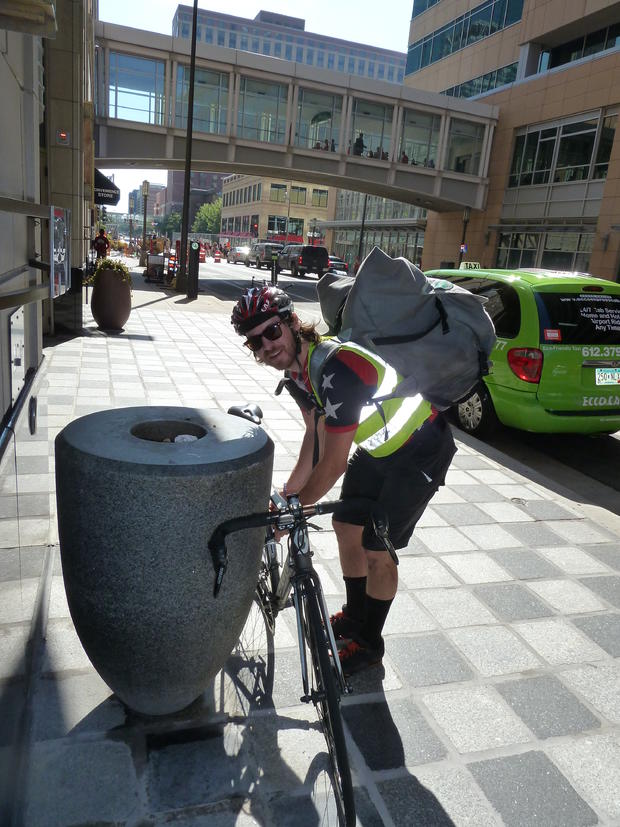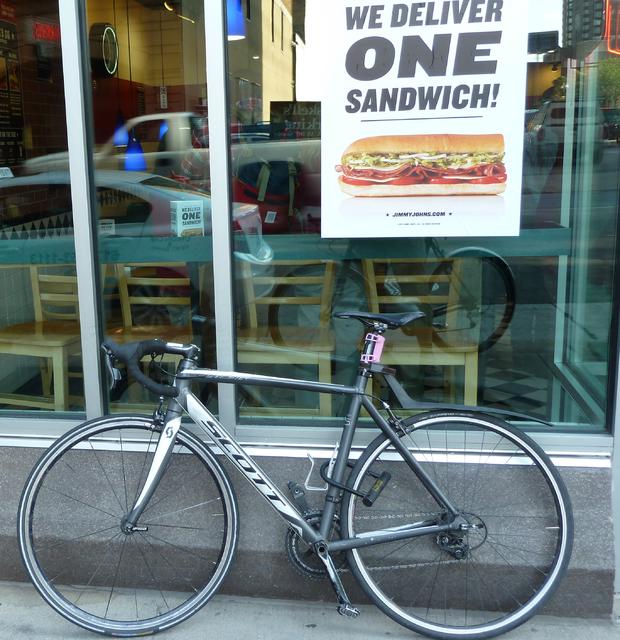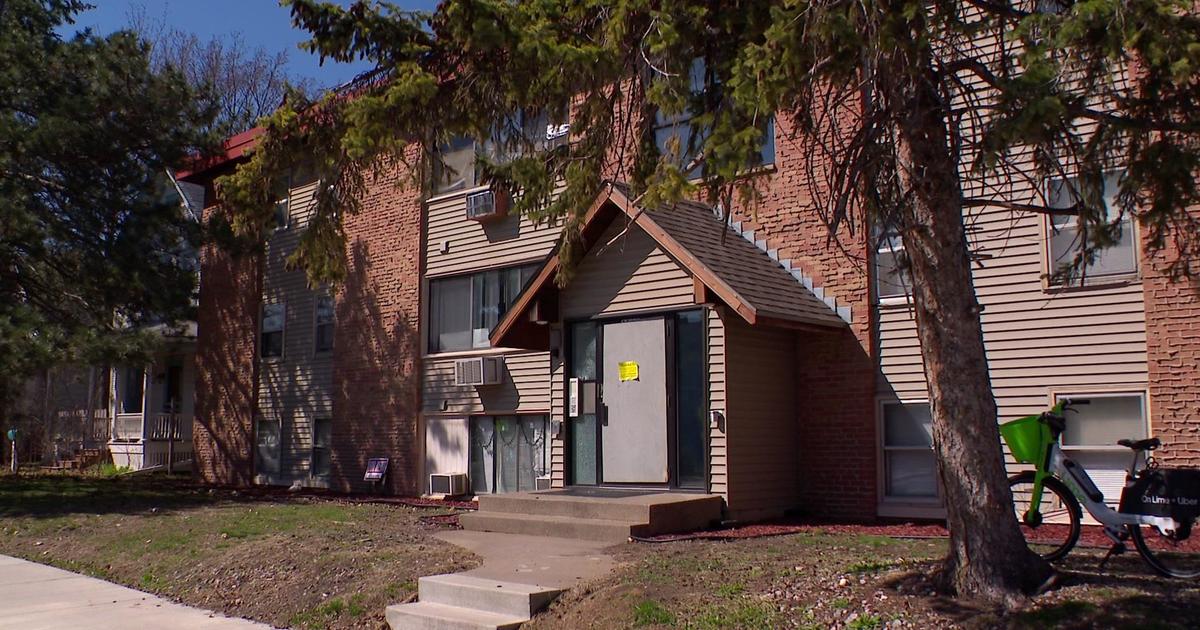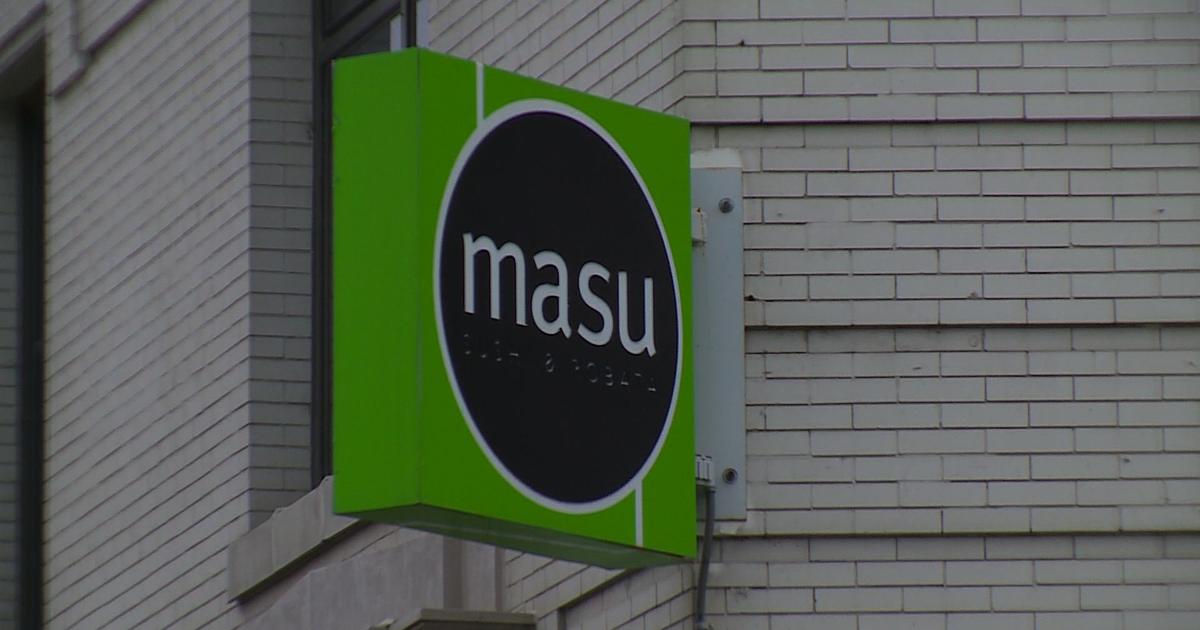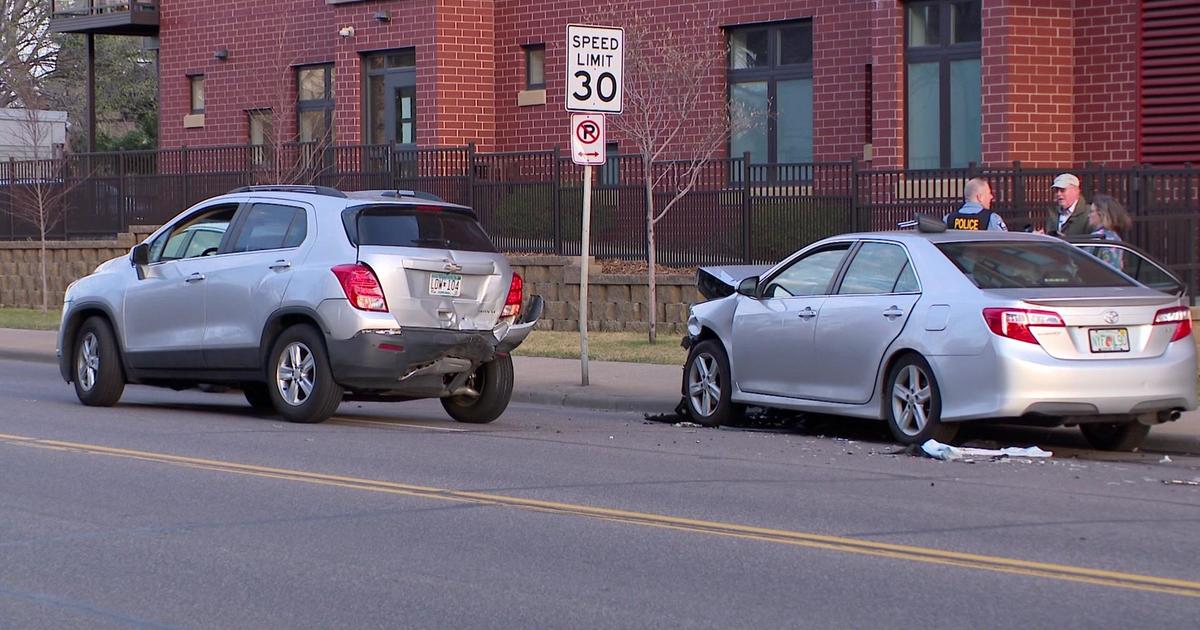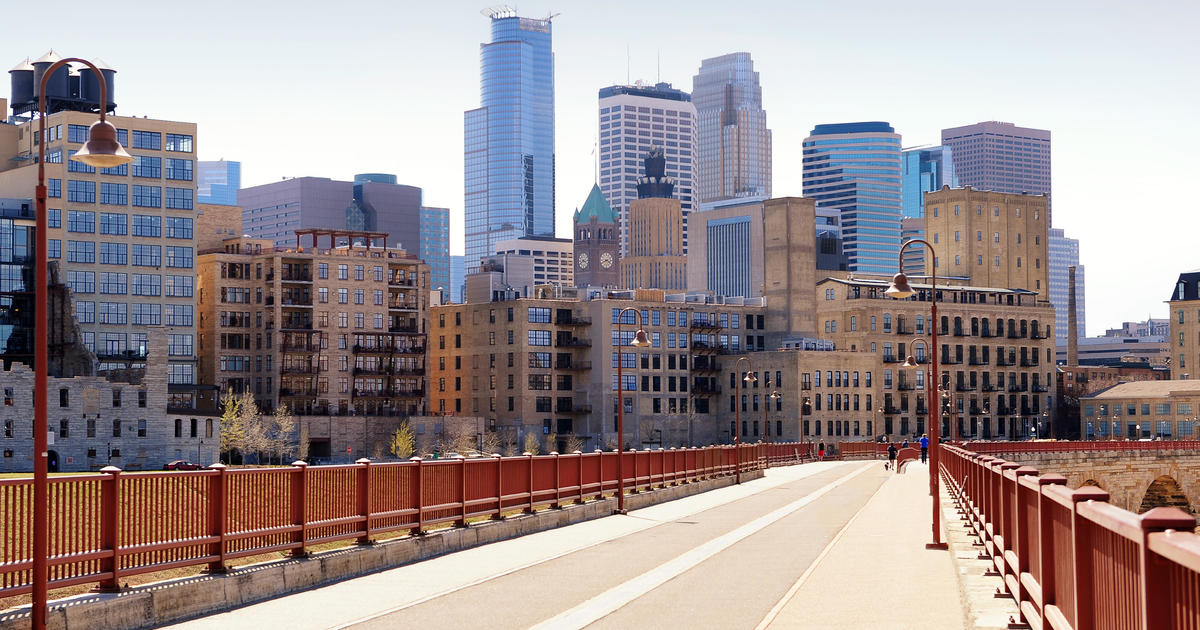Guy On A Bike: Bicycle Messenger Life
The most important rule of being a bicycle messenger is simple: Don't burn a job. To burn a job is to be late, and to be late is to commit the mortal sin of the business. When a client expects something, whether divorce papers or a Vito (hold the tomatoes), you need to get it there on time. I quickly learned this lesson when I met up with Altan Gürel on a beautiful September morning at a Jimmy John's in downtown Minneapolis.
I had previously arranged to ride with Altan, on a handful of runs, to get a sense of the rigors of the job. As I walked in to the sandwich shop I was greeted by a man with the trademark Jimmy John's jersey under a reflective fluorescent green vest, with a sack (so large St. Nick would be jealous) on his shoulders, bee lining for the door.
"Are you Guy?" he said. I affirmed. "I'm Altan. We've got to roll." The messenger who was scheduled to be in first was a no show, so Altan had to leave in a hurry, or risk burning the first orders of the day … and that's no way to start a shift.
When we got on the sidewalk, he rattled off the locations of the first few deliveries and quickly removed his U-lock, while I fumbled with a GoPro camera and my lock. Not wanting to be a burden, I skipped turning on the camera and got in the saddle. Within seconds we were at our first delivery. I stayed outside and fiddled with the camera while he ran in. In no time we were back on the road.
As we continued, delivering dozens of sandwiches throughout the downtown core, I was impressed by Altan's sense of purpose. He was always working quickly and thinking ahead, while never making either myself or his customers feel rushed. After being paid for a rather large order at an architecture firm at the Baker Building, he asked if he could assist the client further, by carrying the food to another room. They declined and we were off to the next delivery.
Prior to departing one stop for the next, the experienced messenger would often call the waiting customer to inform them of his pending arrival: "Hi, this is Altan from Jimmy John's. I will be there with your order in 196 seconds or less." He later explained that using seconds, rather than minutes, invokes a sense of urgency in the customer, increasing the chances they will be at the agreed upon meeting spot when the delivery arrives, allowing Altan to continue on his runs as efficiently as possible.
While bicycle messengers can appear a little rough around the edges, Altan's professionalism was on par with, if not superior to, the junior partner in the Ermenegildo Zenga suit that he might share an elevator with. "Professionalism is a HUGE part of what we do. After all, we are the point of contact with every customer, no matter what we deliver," he said in a written interview post-ride.
Gürel's love affair with the bicycle began in high school, when he began commuting eight miles each way from his Fridley home to DeLaSalle High School on Nicollet Island. After being suspended from college, he made numerous attempts to join the delivery crew at the Dinkytown Jimmy John's. Eventually he was given the opportunity, after convincing management that he could handle long hours. Altan proved himself by working 37 hours in the first four days of work, including three 11-hour weekend shifts that ran until 4 a.m. While the gig became "regular and intrinsic" to his lifestyle, riding from Dinkytown to Fridley at 4 a.m., after a long day of work on a brutally cold winter night, requires the kind of grit and fortitude which most of us lack.
The life of a bicycle messenger is challenging, to say the least. While Minnesota's changing seasons present some difficulties, most of those can easily be countered with proper equipment and preparation. Staying healthy, making a living and balancing multiple gigs pose a lot more trouble.
The Turkish-born Gürel currently juggles messenger duties for three organizations: Jimmy John's, Taco Cat and Rock-It Delivery. Being an independent contractor, rather than an employee, he must self-insure, muddle through complicated taxes and cope with illness or injuries. Sick days mean no pay.
(There are a few exceptions to the independent contractor rule. Metro Legal Services of Minneapolis employs three full-time bike couriers, who enjoy benefits including vacation, sick pay and a 401K. John Levesque, Director of Operations, explained that they employ their riders because, "we believe that that is the ethical way to conduct business," and allows the company to find and retain the very best. "We are incredibly pleased with our bike messengers and frankly proud of them," he went on. "They are hard workers who are efficient at their jobs and have great working relationships with our clients.")
Messengers are usually paid a percentage of the delivery fee, plus any tips. Therefore, you make more money by making more deliveries. While speed can be important, Altan explained that smart routing is paramount to the messenger game.
Messengers, probably more than other cyclists, are subject to scrutiny and ridicule for the way they sometimes ride. Altan explained that the way he rides, which may irk some motorists, is really just a means of keeping himself safe on the roads.
"We are never trying to alienate people. We do what we have to (in order) to get the job done, and on time to boot. Punctuality is a part of being a professional," he said.
Couriers may ride in the middle of a lane in order to ensure they don't get "doored" by a parked driver exiting their vehicle without checking the side mirror. Or a cyclist might pull in front of a lane of stopped cars at a red light, in order to avoid being hit by a car making a right turn, rather than out of a sense of entitlement. The last thing any cyclist wants is a collision with a motor vehicle. Unfortunately, such occurrences are not always avoidable.
In February, Altan was hustling across town from Dinkytown to a restaurant at Lake and Hennepin. As he briskly pedaled south on Hennepin Avenue, with lights on, a car turned left in front of him, the driver's view having been obstructed until the last second. As the rider locked up the rear wheel of his fixie he began to slide sideways. The laws of inertia proved to be unbreakable and the bike hit the car, with Gürel flying over top. The driver was in tears and Altan was sure he had a broken bone or two in his hand. Recognizing the clock was ticking, and remembering the cardinal rule of bicycle messengers, he checked his bike, made sure he could grip, got some witness accounts of the accident and continued on his run.
"I don't know if I did what I did out of childish stubbornness or out of a weird sort of traditional pride," he said. "But I can also point you towards several local couriers who have had similar accidents and have also kept going."
Two of the most important tools of the trade for a bicycle messenger are the two-wheeled machine itself, as well as a quality lock that ensures it's still there when you return from a delivery. Altan learned this lesson early in his career, having an unlocked bicycle swiped after leaving it unattended for less than a minute. Now he always locks up and, while there have been other attempts, he steadfastly defends his property when he encounters a would-be thief. "If I don't ride my bike I don't eat. Rent is real."
While messengers spend a lot of time in the saddle they also spend a large portion of their days in elevators. In fact, Altan was able to read the entire "A Song of Ice and Fire" series on his phone while riding in elevators during work. In fact, if you search Twitter for #weliveinelevators, you are sure to find some amusing posts on the subject. Sadly, some building security guards relegate messengers to freight elevators in what Gürel believes is an "homage to classism."
With eight miles of skyways, a hearty population and a relatively small downtown core, the demand for bicycle messengers in Minneapolis has never been on par with that of other major cities. Add the popularity of email, and mandatory electronic filing of state court cases beginning July of 2016 and a bleak picture is painted of the local bike messenger landscape. (Metro Legal Services once employed a dozen bicycle messengers. Now they have only three.) That being said, there will always be a need for this scrappy bunch, with a greater focus today on food rather than documents.
Artist and photographer Brandon Lockfoot has been documenting the bicycle messengers from cities around the globe in a project entitled "Invisible Infrastructures: Ghosts on the Street." He recently visited Minneapolis and captured a number of local messengers, including Altan. You can find all of his images here. And while you are on social media, check out #messlife.
